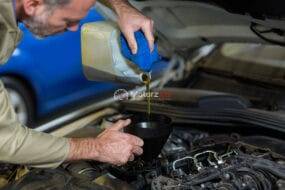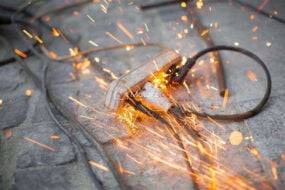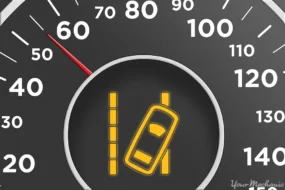Exhaust Leaks Signs and dangers of exhaust leaks. may seem like a minor nuisance, but they can pose significant dangers to both your vehicle and your health. These leaks occur when there is an unintended opening or gap in the exhaust system, allowing toxic gases to escape before they can be properly filtered and directed away from the vehicle. In this article, we will explore the signs of exhaust leaks and delve into the potential dangers associated with them.
Loud Hissing or Popping Sounds:
One of the most apparent signs of an Exhaust Leaks is a noticeable change in the sound of your vehicle. If you hear a hissing or popping noise that is louder than usual, especially during acceleration, it could indicate a leak in the exhaust system. An exhaust leak often results in a more pronounced noise, especially during acceleration, as the escaping gases create a distinct sound. Additionally, you might also notice a rumbling or vibrating sensation. It’s important to address exhaust leaks promptly, not only for the sake of vehicle performance but also because exhaust fumes contain harmful gases, including carbon monoxide.
Unpleasant Odors:
Exhaust fumes have a distinct and unpleasant odor due to the presence of harmful gases such as carbon monoxide. If you notice a strong smell of exhaust inside the car or around the vehicle, it is a clear indication of a potential leak. Exhaust leaks can disrupt the proper functioning of your engine, leading to a decrease in fuel efficiency. If you find yourself making more frequent trips to the gas station without any apparent reason, it might be worth inspecting your exhaust system for leaks.
Visible Smoke or Vapor:
Another visual sign of an Exhaust Leaks is the presence of smoke or vapor near the exhaust pipe. This could be a result of the escaping gases condensing in the cooler air, creating a visible cloud. While driving, if you feel unusual vibrations or a hissing sensation through the pedals or steering wheel, it could be an indication of an exhaust leak affecting the overall performance of your vehicle.
Carbon Monoxide Poisoning:
Perhaps the most serious danger associated with exhaust leaks is the risk of carbon monoxide poisoning. Carbon monoxide is a colorless, odorless gas that is present in exhaust fumes. If these fumes enter the vehicle cabin due to a leak, it can lead to symptoms like dizziness, nausea, headaches, and, in extreme cases, even death. It’s a silent, sneaky threat that can turn a simple car ride into a serious health risk. Regular vehicle maintenance and keeping an eye out for any signs of exhaust leaks can go a long way in preventing such dangers. Safety first, always
Environmental Impact:
Exhaust leaks not only harm those inside the vehicle but also contribute to environmental pollution. Unfiltered and unburned gases released into the atmosphere can harm air quality and have negative effects on the environment. An exhaust leak can affect the back pressure in the exhaust system, potentially leading to damage to the engine components. This can result in decreased performance, increased emissions, and costly repairs.
Legal Consequences:
Operating a vehicle with a known exhaust leak may lead to legal consequences. Many regions have regulations regarding vehicle emissions, and driving a car with a faulty exhaust system could result in fines or even the suspension of your driving privileges. A leak can disrupt the balance of the exhaust, impacting fuel efficiency, horsepower, and torque. Ignoring the issue could lead to more extensive and expensive repairs in the long run.
Conclusion
In conclusion, Exhaust Leaks are not just a minor inconvenience; they pose serious risks to your health, the environment, and the longevity of your vehicle. If you suspect an exhaust leak, it is crucial to address the issue promptly by consulting with a qualified mechanic. Regular maintenance and inspections can help prevent exhaust leaks and ensure the safe and efficient operation of your vehicle. If you suspect an exhaust leak, it is crucial to address the issue promptly by consulting with a qualified mechanic. Regular maintenance and inspections can help prevent exhaust leaks and ensure the safe and efficient operation of your vehicle







